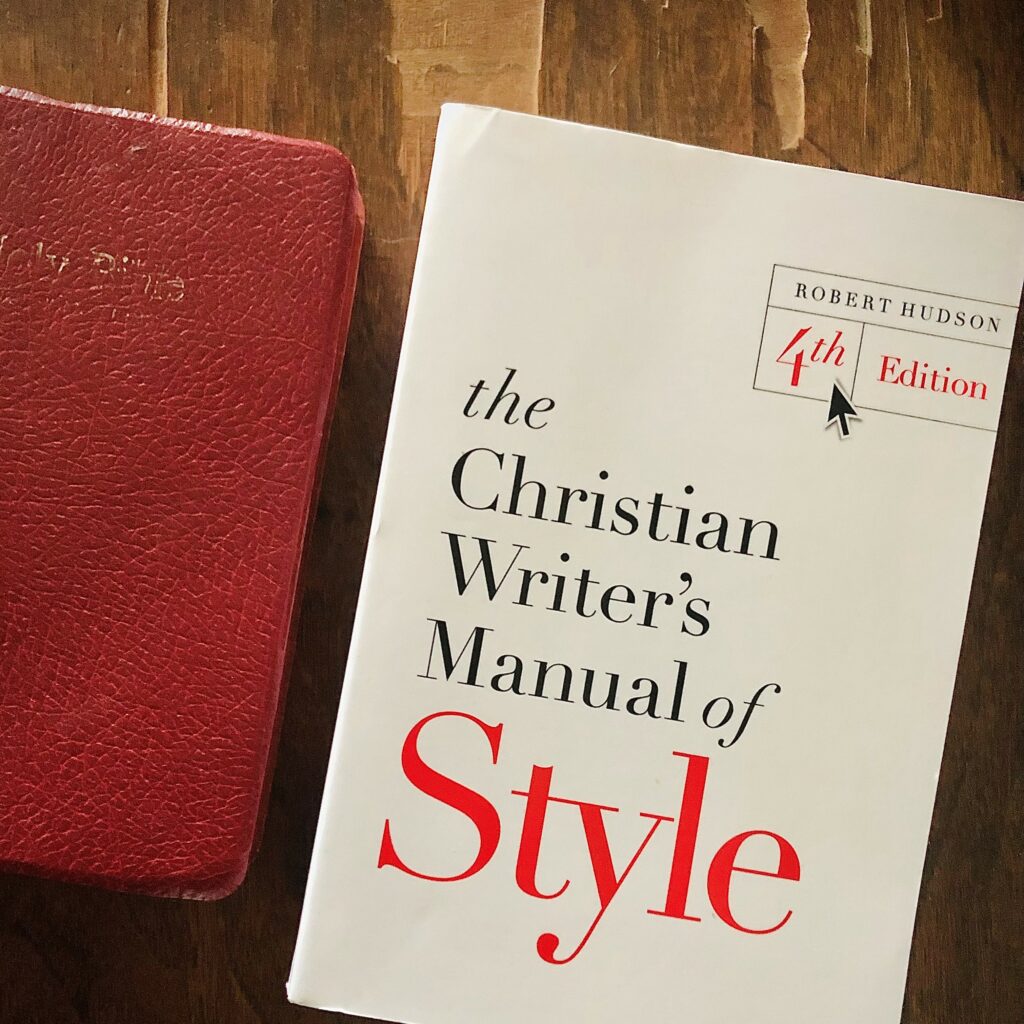This guide has been my constant companion this month. The Christian Writer’s Manual of Style is my go-to resource for editing faith-based materials. And because I have the privilege of publishing two Bible study books this season, the style guide has been within reach for weeks.

In case you’re wondering: It’s Jesus’s crown, not Jesus’ crown. “Gospel” is capitalized in the Gospel of John but not when you’re referring to the four gospels. And most publishers allow you to quote their versions of the Bible as long as you include proper citations and limit verses to a certain number.
A style guide is necessary for writers, editors, marketers – anyone who creates content. It provides a set of standards to ensure that writers maintain consistent punctuation, usage, and citation across texts. The Christian Writer’s Manual of Style is perfect for the unique needs of faith-based books, but it’s not the only guide.
Here are some of the most popular:
- The Chicago Manual of Style has been the beloved standard for book publishing for more than 100 years. It’s what I use for most of my authors’ books. But it’s a whopping 1,000 pages, so I subscribe to the online manual for easier access.
- The Associated Press Stylebook is the best resource for media and journalism. You’ll see its rules applied to magazines and newspapers. It’s what I use online and in business writing.
- American Psychological Association Style is the standard for most scholarly writing. It organizes papers in a predictable way and ensures ethical compliance. I’m using this style in a client’s dissertation on global terrorism.
- Company-specific style guides. Did you know that 67 percent of companies develop their own corporate style guides for content? They specify the grammar norms and jargon that are expected for corporate brands. They are tools to make sure that companies look and sound the same regardless of department or location.
Each of these style guides is useful for a different purpose. The right style guide depends on your text and audience.
Regardless of the guide you choose, all of the editing rules can be boiled down to one fundamental standard: Be consistent. Whether you like the Oxford or not, and whether you capitalize after a colon or not, consistency shows your professionalism. So pick one approach – and go with it!
